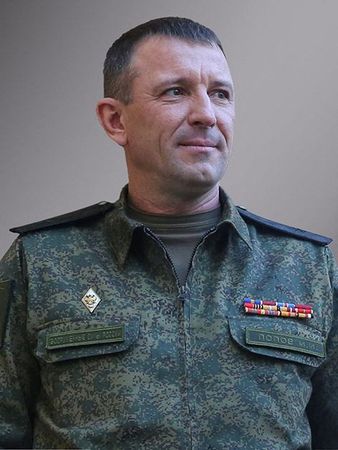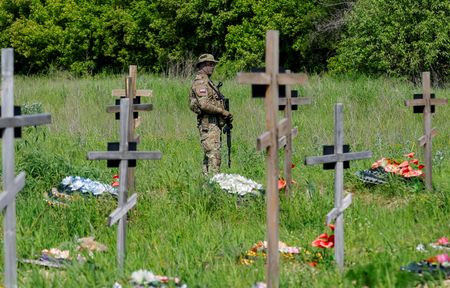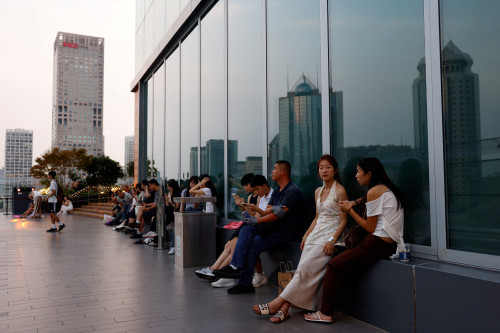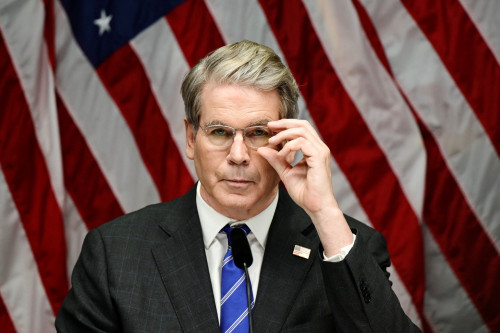By Guy Faulconbridge
MOSCOW (Reuters) – A Russian general said he had been dismissed as a commander after telling the military leadership about the dire situation at the front in Ukraine, where he said Russian soldiers had been stabbed in the back by the failings of the top military brass.
After the June 24 mutiny by Wagner mercenaries, the biggest domestic challenge to the Russian state in decades, President Vladimir Putin has so far kept Defence Minister Sergei Shoigu and Chief of the General Staff Valery Gerasimov in their jobs.
Major General Ivan Popov, who commanded the 58th Combined Arms Army, said in a voice message published by Russian lawmaker Andrei Gurulyov that he had been dismissed after telling the truth to the top brass about the situation at the front.
“The Ukrainian army could not break through our ranks at the front but our senior chief hit us from the rear, viciously beheading the army at the most difficult and intense moment,” Popov said.
Popov, whose military call sign was “Spartacus” and who commanded Russian units in southern Ukraine, explicitly raised the deaths of Russian soldiers from Ukrainian artillery and said the army lacked proper counter artillery systems and reconnaissance of enemy artillery.
There was no immediate comment from the defence ministry and Reuters was unable to independently verify the authenticity of the voice message. Lawmaker Gurulyov is a hardline former army commander who regularly appears on state television.
It was unclear when the message was recorded and Popov’s current whereabouts were not known. The defence ministry has not said anything about his dismissal.
Such public criticism of Russia’s military leadership from a battle-hardened general less than three weeks since the Wagner mutiny, if authentic, would indicate continued discontent within the Russian army as it fights the biggest land war in Europe since World War Two.
RUSSIAN ARMY
Putin, Russia’s paramount leader since 1999, has said the mutiny risked tipping Russia into civil war and has compared it to the revolutionary turmoil of 1917.
The Kremlin has sought to project calm, but Russian officials and diplomats have told Reuters that the full consequences of the mutiny – which Wagner leader Yevgeny Prigozhin said was aimed only at settling scores with Shoigu and Gerasimov – have yet to play out.
Neither Prigozhin nor General Sergei Surovikin, a deputy commander of Russia’s military operations in Ukraine, have been seen in public since the day of the mutiny.
Prigozhin had for months been openly insulting Putin’s most senior military men, using a variety of crude expletives and prison slang that shocked Russian officials but that were left unanswered in public by Putin, Shoigu or Gerasimov.
Popov, 48, said he had faced a watershed moment when he told the military chiefs the truth.
“There was a tough situation with the senior bosses in which it was necessary either to keep quiet and be a coward or to say it the way it is,” Popov said. He did not say when he raised the complaints.
“I had no right to lie in the name of you, in the name of my fallen comrades in arms, so I outlined all the problems which exist.”
MILITARY REBEL?
In 2017, the official newspaper of Russia’s armed forces published a profile of Popov. It said he had previously served in Russia’s war against separatists in Chechnya and in the 2008 war in Georgia.
A Telegram channel linked to Wagner mercenaries said that Popov had raised the need to rotate exhausted troops from the front line with Gerasimov. Reuters could not verify that report.
Russia’s main state television channels did not report the remarks by Popov on their main news programmes on Thursday, though Kommersant, a respected Russian newspaper, did report them.
War bloggers in Russia were split between those who said Popov’s remarks were open defiance and those who said Popov was not a mutineer but simply a well-respected general who had fallen out with the top brass.
“This is a dangerous precedent,” said Igor Girkin, a former Federal Security Service (FSB) officer who helped Russia annex Crimea in 2014 and then organise pro-Russian militias in eastern Ukraine.
Popov said his future was now uncertain.
“The senior chiefs apparently sensed some kind of danger from me and quickly concocted an order from the defence minister in just one day and got rid of me,” he said. “I await my fate.”
(Reporting by Guy Faulconbridge; Editing by Andrew Osborn and Angus MacSwan)






